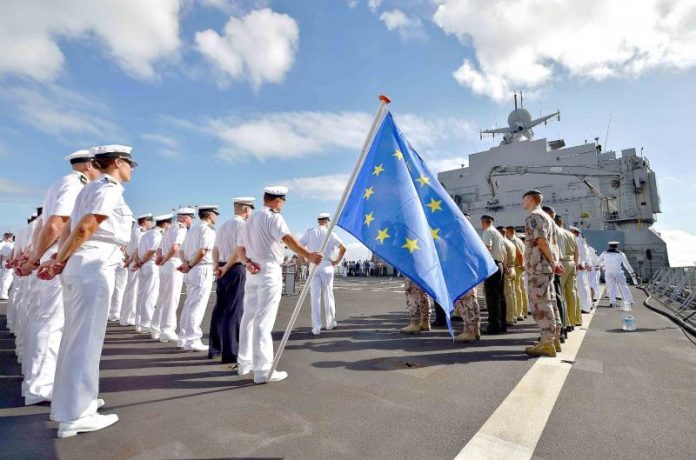With China’s overseas military expansion and advocacy of a new world order, Djibouti’s congested territory could become a collision point in a new scramble for Africa.
For a century after the Napoleonic wars, Europe pursued what became known as the “scramble for Africa.” After the second world war, political sovereignty devolved to 54 countries from Egypt to South Africa but, throughout Africa, foreign nations sought to maintain economic influence and military access.
For the latter, the pre-eminent locale is Djibouti, Africa’s third smallest country. At 23,200 sq.km and with fewer than 1 million citizens, Djibouti is valued not for its resources but its geostrategic position. Bordered by Eritrea to the north, Ethiopia in the west and south and Somalia to the south-east, Djibouti’s eastern maritime border abuts the Red Sea and the Gulf of Aden.
Between Djibouti and Yemen lies the Bab el Mandeb Strait, a 19km-wide passage through which more than 4.8 million barrels per day of crude oil and refined petroleum products flow.
Djibouti hosts more foreign military bases than any other country, with French, US, Italian, Chinese and Japanese forces maintaining permanent presence there. After Djibouti gained independence in 1997, French troops remained. There are approximately 1,500 French personnel in Djibouti, one of the largest such contingents outside France. Rising piracy and terrorism in the Horn of Africa have slowly drawn other foreign militaries to Djibouti.
The year after the 9/11 attacks, Djibouti leased Camp Lemonnier to the United States. It houses the US Africa Command’s (AFRICOM) Combined Joint Task Force-Horn of Africa. Camp Lemonnier is the only permanent US military base in Africa. Every other African country declined to house AFRICOM, considered politically radioactive.
Since October 2013, Italy has maintained a base in Djibouti with 300 personnel. That makes Italy the third NATO member, joining France and the United States, to have a base in Djibouti.
Asian nations have established military presences in the Horn of Africa. In July 2011, the Japan Self-Defence Forces (SDF) opened a base in Djibouti. As Japan’s first full-scale, long-term overseas base, it has 600 members of Japan’s Maritime SDF. Last year, China opened its People’s Liberation Army (PLA) Support Base in Djibouti at a cost of $590 million. China’s first overseas military base is operated by the PLA Navy.
Djibouti is strategically located, of course, but the question remains: Why the massive military presence in north-eastern Africa?
Djibouti is willing to host foreign militaries because they generate more than $300 million in annual income. For NATO countries, a presence in Djibouti provides maritime security and a base for combating regional militant threats, even though piracy off the coast of Somalia fell sharply from 2012-17. While Japan and China share those concerns, Beijing seeks to incorporate Djibouti as a major regional trade hub in its Belt and Road Initiative.
China is Africa’s primary source of foreign direct investment (FDI.) China is Africa’s largest-trading partner, and in 2015, Beijing said it would invest $60 billion in infrastructure projects there.
In July, Djibouti began the first phase of a $3.5 billion free trade zone in which China Merchants Group and Dalian Port Authority have a stake. Djibouti has borrowed nearly $957 million from the Export-Import Bank of China to finance several projects, a sum that dwarfs all other FDI.
Djibouti’s future will probably be marked by many of the same concerns that affect it today: poverty, terrorism, political fragility and rising superpower tensions. Meanwhile, its debt totals 84% of GDP, most of it to China.
A century ago, the first world war had a profound effect on Africa. It’s increasingly likely the continent may again be rocked by distant events. The Trump administration has retreated from a liberal agenda and raised tensions with China to an unprecedented level.
With China’s overseas military expansion and advocacy of a new world order, Djibouti’s congested territory could become a collision point in a new scramble for Africa. Its military tenants, especially China, which stands to lose the most, will seek to protect their investments in the country.
John C.K. Daly is a Washington-based specialist on Russian and post-Soviet affairs.
































